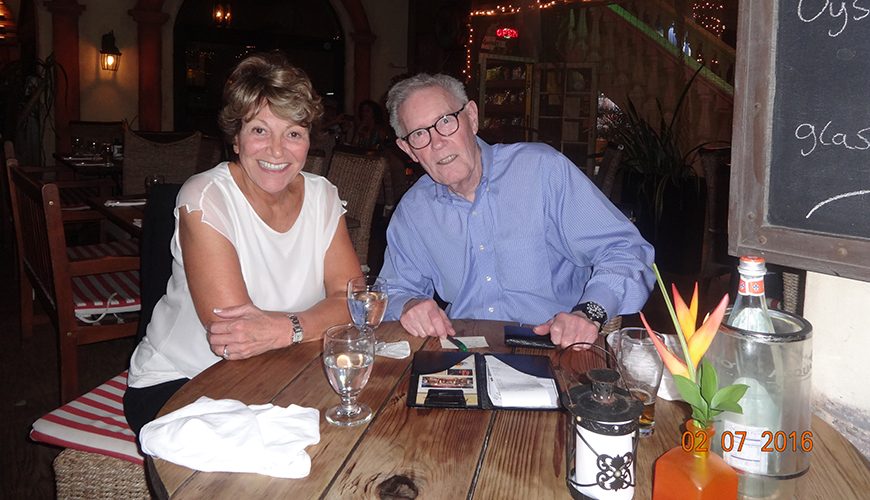Category
An End to Atrial Fibrillation

The ability to get up and move freely, and without pain, is a gift that Porter McMillian will always cherish. Having suffered with back pain for most of his adult life, when Porter was diagnosed with atrial fibrillation—a type of abnormal heart rhythm (arrhythmia)—in 2013, it was yet another painful reminder that he was not able to get up and walk as easily as others could.
“Between my back and my heart, it’s been crazy,” Porter says. “Atrial fibrillation just drained me. I couldn’t walk 20 feet without stopping to catch a breath. I was totally energy-less.”
With atrial fibrillation, Porter not only felt less energized but the sporadic increases in his heart rate put him at a greater risk of stroke, heart failure, and other heart-related complications. When he could no longer treat the arrhythmia with medications, Porter’s primary care physician referred him to Jefferson cardiology and electrophysiology specialist, Daniel R. Frisch, MD.
Dr. Frisch, an expert in the diagnosis and treatment of heart rhythm disorders, began treating Porter with cardioversion—a procedure where the heart is given light electrical shocks to trigger a normal rhythm. Dr. Frisch later performed a procedure called ablation, inserting small catheters into Porter’s heart and administering a radiofrequency current to selectively destroy heart cells that are triggering atrial fibrillation.
While both of the procedures helped keep Porter’s arrhythmias at bay, when the irregular heartbeats became more frequent, Dr. Frisch recommended an ICD implant. An ICD is an electronic defibrillator that constantly monitors the heart’s rhythm and restores the heart to normal rhythm when it detects irregular beats.
Since Dr. Frisch installed the ICD last summer, Porter says he finally feels healthy enough to take a long stroll. In fact, for his wife’s birthday this year, he took her on a trip to New York City. Together, they walked roughly three miles through the city, taking in the sights—and not once did he feel the need to stop and catch his breath.
“So far, it’s working just fine. It turns out that I’m now constantly in atrial fibrillation, but it’s constantly being fixed by this treatment,” Porter says. “It’s improved the quality of my life in all ways.”
Following the procedure, Dr. Frisch connected Porter with Jefferson cardiology specialist, Gordon R. Reeves, MD, to help ensure that he received the proper medication and rehabilitation regimens.
“That was very helpful because it enabled me to cut back on several of the medications I was on. That, to me, is an example of Dr. Frisch utilizing every resource that might benefit me as a patient,” Porter says. “Now I have a regular life back. I can walk.”